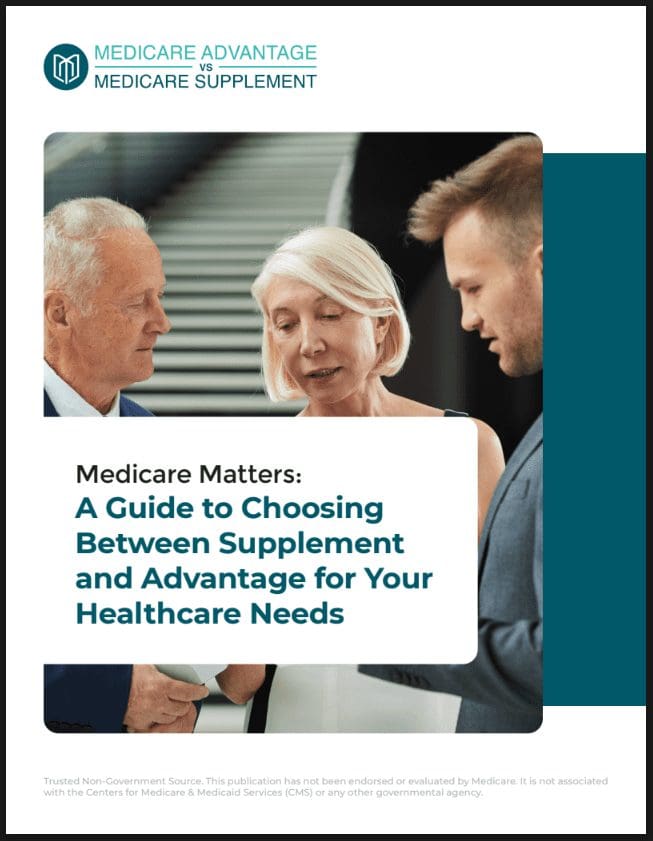Key Takeaways:
- Missing Medicare enrollment deadlines can result in penalties and delayed access to healthcare coverage.
- Understanding alternative enrollment periods like the General Enrollment Period and Special Enrollment Periods can help you regain coverage.
Missed Your Medicare Enrollment Deadline? Here’s What That Means for Your Wallet and Coverage
Missing your Medicare enrollment deadline can have significant financial and healthcare consequences. Whether it’s your Initial Enrollment Period (IEP), General Enrollment Period (GEP), or Medicare Advantage Open Enrollment Period, missing these windows could leave you facing penalties, limited coverage options, and periods without healthcare. This article explores the potential fallout from missing your Medicare deadlines, what to expect for your wallet, and how you can get back on track.
Why Missing Your Initial Enrollment Period Costs You
The Initial Enrollment Period (IEP) is your first opportunity to sign up for Medicare and spans seven months: three months before your 65th birthday, your birthday month, and three months after. Missing this crucial period can lead to a variety of problems, both financial and in terms of coverage.
Financial Penalties for Late Enrollment
If you fail to enroll in Medicare Part B (which covers medical services like doctor visits and outpatient care) during your IEP, you’ll likely face a 10% penalty on your premium for each 12-month period you were eligible but didn’t enroll. This penalty sticks with you for as long as you have Medicare, meaning it’s not a one-time charge but a lifetime increase in your premiums. The penalty can add up quickly, making Medicare much more expensive than it needs to be.
Similarly, if you miss enrolling in Medicare Part D (prescription drug coverage), you’ll face a 1% premium increase for each month you delay. Like Part B, this penalty is permanent and can make managing your prescription costs much harder as you age.
Coverage Delays and Gaps
Not only does missing the IEP come with financial penalties, but it can also leave you without essential healthcare coverage for months. Without Medicare Part B, you’ll be responsible for paying out-of-pocket for medical services that would otherwise be covered. This includes preventive care, which could detect health issues early on. Missing coverage could also result in unexpected costs if you need emergency care.
Additionally, if you miss the deadline for enrolling in a Part D prescription drug plan, you may be stuck without coverage for medications, leading to high out-of-pocket costs for your prescriptions.
What is the General Enrollment Period (GEP)?
The General Enrollment Period (GEP) serves as a second chance for those who missed their IEP. It occurs every year from January 1 to March 31, with coverage starting on July 1. However, there are still consequences to enrolling during this period.
The Financial Impact of Enrolling Late
When you sign up for Medicare during the GEP, you’re still subject to the late enrollment penalties associated with both Medicare Part B and Part D. This means you’ll continue to pay higher premiums for the rest of your time in Medicare. The sooner you enroll after missing your IEP, the lower your penalty will be, but you’ll still face an added expense that could have been avoided.
Limited Coverage Until July 1
If you enroll during the GEP, your coverage doesn’t begin until July 1. This means that from the time you missed your IEP to the time your GEP coverage starts, you could be without healthcare. Any medical services you need in the meantime will be fully out-of-pocket, which could result in hefty bills if you face any health issues. This gap in coverage can be particularly risky for older adults, who are more likely to need consistent medical care.
The Importance of the Medicare Advantage Open Enrollment Period (OEP)
If you’re already enrolled in a Medicare Advantage plan but are unhappy with your coverage, the Medicare Advantage Open Enrollment Period (OEP) provides a valuable opportunity to make changes. This period runs from January 1 to March 31 each year and allows you to switch from one Medicare Advantage plan to another or go back to Original Medicare.
Why Missing the OEP Can Limit Your Coverage
Failing to take advantage of the OEP means you’re stuck with your current plan for the rest of the year, unless you qualify for a Special Enrollment Period (SEP). If your plan isn’t meeting your needs, you could end up paying more than necessary for your healthcare or going without coverage for services you need, such as specific medications or specialists.
During the OEP, you can make only one change, so it’s important to carefully review your options before switching plans. Missing this window leaves you with fewer opportunities to adjust your coverage until the next Annual Enrollment Period (AEP) in the fall.
Special Enrollment Period (SEP): Your Lifeline for Regaining Coverage
If you missed both your IEP and GEP, there may still be hope through a Special Enrollment Period (SEP). SEPs are triggered by specific life events, such as losing your employer-sponsored health insurance or moving to a new area that isn’t covered by your current plan.
Qualifying for an SEP
Common events that trigger an SEP include:
- Loss of employer coverage: If you delayed Medicare enrollment because you were covered under your employer’s group health plan, you can enroll during an SEP without facing penalties. This SEP lasts for eight months after your employer coverage ends.
- Relocating: If you move out of your current plan’s service area, you can enroll in a new Medicare plan during an SEP.
- Other qualifying life events: These include changes in your Medicaid eligibility or gaining Extra Help with Medicare prescription drug costs.
SEPs are a crucial safety net, but they’re not guaranteed. Failing to qualify for an SEP means you’ll have to wait for the next General Enrollment Period, which delays your coverage even further and increases the penalties you’ll pay.
What Are the Consequences for Your Wallet?
Missing Medicare deadlines impacts your wallet in several ways, from the aforementioned penalties to out-of-pocket costs for healthcare. Here’s a breakdown of the main financial consequences:
Higher Premiums for Life
Once you’ve missed your IEP, you’re likely looking at higher premiums for Medicare Part B and Part D for the rest of your life. These penalties compound with each year you delay, so waiting too long can significantly impact your budget.
Out-of-Pocket Costs for Medical Services
Without Medicare coverage, you’ll have to pay out-of-pocket for any healthcare services you need. These can include routine doctor visits, tests, and emergency care. If you have a chronic condition, the costs can skyrocket without Medicare coverage to help offset expenses.
Prescription Drug Costs
Medications can be one of the biggest healthcare expenses for older adults. Missing out on enrolling in a Part D plan means paying full price for your prescriptions, which can quickly add up, especially for high-cost drugs.
How to Avoid Missing Important Medicare Deadlines
The best way to avoid the costly consequences of missing your Medicare enrollment deadlines is to prepare in advance. Here are some tips to help you stay on top of your enrollment windows:
-
Mark Your Calendar: Know when your Initial Enrollment Period starts and ends. The seven-month window is your first opportunity to enroll in Medicare.
-
Understand Employer Coverage: If you have coverage through your job or your spouse’s job, find out when that coverage will end and whether you qualify for an SEP. Knowing this will prevent you from accidentally missing your IEP.
-
Use Special Enrollment Periods Wisely: If you qualify for an SEP due to life events like moving or losing employer coverage, enroll as soon as possible to avoid gaps in your healthcare.
-
Review Your Coverage During OEP: If you’re already enrolled in a Medicare Advantage plan, take advantage of the OEP to make necessary changes. Don’t wait until your plan fails to meet your needs.
Reclaiming Your Medicare Coverage
If you’ve missed your enrollment deadlines, the key is to act fast to regain coverage. Whether it’s through the General Enrollment Period, Special Enrollment Period, or Medicare Advantage Open Enrollment Period, the sooner you enroll, the sooner your coverage will begin. Waiting too long can leave you with costly penalties and unnecessary gaps in your healthcare, making it essential to understand your options and act accordingly.
Avoiding Penalties and Ensuring Continuous Coverage
By staying informed about Medicare’s enrollment periods, you can avoid the financial pitfalls and coverage gaps that come with missing deadlines. Whether you’re approaching your IEP or need to make changes during OEP, taking action now can save you money and ensure you have access to the healthcare services you need.










